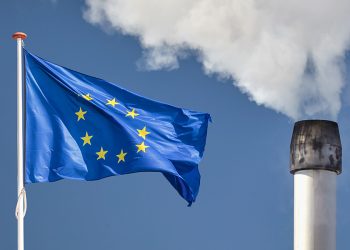Lloyd’s Register’s (LR) has provided an overview of the key outcomes of the 11th session of the Sub-Committee on Human Element, Training and Watchkeeping, which took place 10 – 14 February 2025 at the IMO in London.
The Sub-Committee on Human Element, Training and Watchkeeping deals with the human side of shipping, including training and certification; the review, updating and revision of IMO model courses; and guidance addressing issues such as fatigue. According to LR, some of the significant outcomes from HTW 11 include:
- The interim generic guidelines for the training of seafarers using alternative fuels and new technology were finalised
- Development of the interim guidelines for seafarers using methyl/ethyl alcohol as fuel was commenced.
- The comprehensive review of the STCW Convention continued.
- Stage 1 of the road map, the review stage, which is the gap analysis, was completed.
- A work plan for Stage 2 was developed.
Comprehensive Review of the 1978 STCW Convention and Code
HTW continued its discussion on the comprehensive review of the STCW Convention, which is taking place in two stages. Stage 1 is a review phase, involving a gap analysis to identify the work that needs to be done, while Stage 2 is the revision phase, proposing and agreeing on amendments to fill the identified gaps. HTW reiterated that if a gap is identified, it should not necessarily be filled with a new requirement.
Concerns were raised about the cumulative impact of additional training requirements on seafarers and maritime education and training institutions. It was agreed that the cumulative impact would be considered at each step of the roadmap.
The review phase was finalized during this session, identifying over 500 gaps that require further consideration in the revision phase. Additional gaps included:
- The term “endorsement” could refer to the issuing of certificates (when issuing and flag administrations are the same) or to their recognition (when issuing and flag administrations are different), which could be confusing.
- A lack of competency in seafarers is within the scope of port State control (PSC) inspections, but a lack of familiarization is not.
- Alignment of the term “documentary proof” throughout the STCW Convention and Code.
- Consideration of a senior electro-technical officer grade due to potential technological changes as part of the energy transition.
To progress the review, it’s anticipated that an intersessional working group will be held back-to-back with future HTW sessions every other year, starting at HTW 12 in 2026. A workplan has been developed to systematically revise the Convention and Code, beginning with Chapters 2 and 3 of the Convention and associated sections of the Code, which are fundamental to it. The overall process is now expected to conclude at HTW 17 in early 2031. Consequently, the original roadmap has been amended, with amendments to the STCW Convention expected to be adopted in 2031 or 2032, and entry into force anticipated at a later time. Some member States and observer organizations expressed concern over the time it will take to complete the review.
Development of Interim Guidance on Training for Seafarers on Ships Using Alternative Fuels and New Technologies
HTW began developing interim guidelines for training seafarers on ships using alternative fuels and new technologies. It was agreed that the guidelines would be developed in a hybrid format, providing both generic requirements for all fuel/energy types and new technologies, as well as fuel/technology-specific requirements.
Development of Interim Guidelines on Training for Seafarers on Ships Using Alternative Fuels and New Technologies
The generic and fuel/technology-specific requirements will be developed in parallel, taking into account the particular characteristics of each fuel or technology. The types of fuels/energy sources for which guidelines will be developed in the future will be driven by the work of the Carriage of Cargoes and Containers (CCC) subcommittee. Fuels/energy sources for which standards have already been developed will be considered first. A priority list for the fuels/energy sources for which seafarer training guidelines will be developed was agreed upon, in the following order:
- The use of methyl/ethyl alcohols as fuel.
- The use of ammonia as fuel.
- Hydrogen fuel cell-powered ships.
- The use of LPG as fuel.
- The use of hydrogen as fuel.
- Battery-powered ships.
During this session, using STCW.7/Circ.23 Interim guidance on training for seafarers on ships using gases or other low-flashpoint fuels as the basis, the generic interim guidelines were finalized. It was also agreed that the structure of the fuel-specific interim guidelines would be individual to each fuel or technology. Each set would include specific Knowledge, Understanding, and Proficiency (KUP) tables for the fuel or technology covered and be issued as an STCW.7 circular.
Concerns were raised that developing fuel/technology-specific guidelines could lead to training overload for seafarers. It was agreed that commonalities in the guidelines would be combined wherever possible, especially when developing future amendments to mandatory instruments.
Draft Circular on Interim Generic Guidance on Training for Seafarers on Ships Using Alternative Fuels
The development of draft generic guidance was finalized, which includes:
- Requirements for the onboard familiarization of seafarers on ships using alternative fuels and new technologies.
- Requirements for basic training for seafarers with safety duties associated with the care, use, or emergency response to the fuel and/or systems on ships using alternative fuels and new technologies.
- Requirements for advanced training for masters, engineer officers, and all personnel with immediate responsibility for the care and use of fuels and/or systems on ships using alternative fuels and new technologies.
- Standards of competence for both basic and advanced training.
- The need to conduct emergency exercises on board ships using alternative fuels and new technologies at regular intervals.
The draft STCW.7 circular is expected to be approved at the Maritime Safety Committee (MSC) 110 in June 2025.
Draft Interim Guidelines on Training for Seafarers on Ships Using Methyl/Ethyl Alcohol as Fuel
As the fuel with the highest priority for related seafarer training, the development of draft interim guidelines on training for seafarers using methyl/ethyl alcohol as fuel was started but not completed during this session. The interim guidance will take into account MSC.1/Circ.1621 on Interim guidelines for the safety of ships using methyl/ethyl alcohol as fuel, along with relevant parts of several papers submitted to HTW 11.
KUP Tables Development
KUP tables will be developed by comparing the existing International Code of Safety for Ships Using Gases or Other Low-Flashpoint Fuels (IGF Code) training requirements at the basic and advanced levels with the specific needs of seafarers using methyl/ethyl alcohols as fuels, identifying the gaps. The draft interim guidelines were not completed at this meeting and will be further considered by a correspondence group.
Draft Interim Guidelines for the Training of Seafarers Using Other Fuels and Technologies
The development of other prioritized interim guidelines is included in the terms of reference for the correspondence group, which will report to HTW 12 in early 2026. At this stage, it’s unclear how much progress is expected to be made.
Role of the Human Element
A proposal was submitted on the impact of autonomous technologies on the skills and competencies that seafarers will require in the future. It highlighted the following needs for seafarers:
- Increased knowledge of communications and information technology for both shore-based and ship-based personnel.
- Understanding of technology associated with Marine Autonomous Surface Ships (MASS), its possibilities, and limitations.
MSC 108 had agreed to develop high-level training provisions for the MASS Code, where competency KUPs can be developed by HTW following the finalization of the Code. As the MASS Code is still under development, it will be considered later.
A discussion on having a sole watchkeeper on MASS at night during trials took place. HTW will advise the MSC that STCW regulation 1/13 (conduct of trials) applies to MASS trials. This will allow the MSC to decide whether a sole watchkeeper at night is permitted.
Accessibility of Information on Seafarer Medical Certificates
HTW finalized a draft MSC resolution on the accessibility of information on seafarer medical certificates and medical practitioners recognized for conducting seafarer medical examinations. The resolution, expected to be approved by MSC 110 in June 2025, encourages government organizations to provide information on their official websites where the validity of seafarer medical certificates can be checked. It also encourages governments to provide access to their registers of recognized medical practitioners through the IMO Global Integrated Shipping Information System (GISIS) portal.


































































